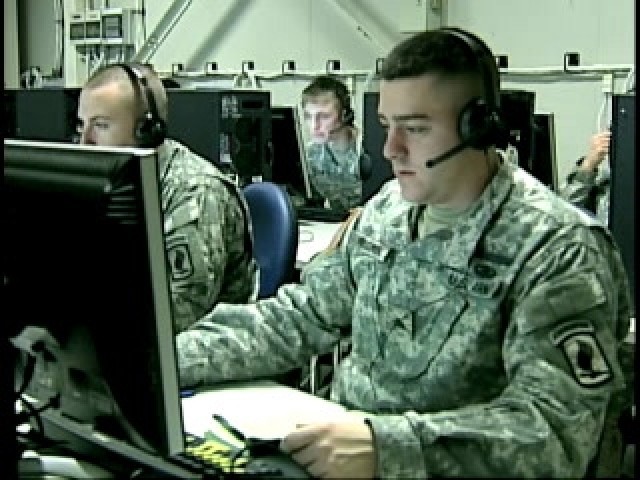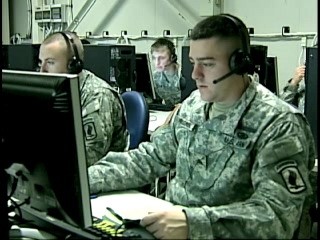VINCENZA, Italy (Army News Service, Jan. 22, 2007) - By the time Soldiers from the 173rd Airborne Brigade and other units of the Southern European Task Force here have stepped foot in Iraq, they've already spoken Arabic face-to-face with Iraqis on Baghdad streets.
Caserma Ederle's Battle Command Training Center provides the "virtual" Iraqis to train Soldiers in language proficiency and cultural awareness through computer video games with animated characters and life-like simulations that emphasize missions they'll conduct downrange.
The tactical Iraqi language and culture training, known as TILT, requires no instructor and is done solely on a self-paced basis. The 100-hour course is set up on computers like a video game with voice-activated commands and characters who respond in kind and with gestures.
Like popular civilian video games, TILT is user-friendly and difficult to stop playing.
"Everyone plays video games now days," said Pvt. Ryan Soto. "And everyone seems to work on a computer, so instead of sitting there trying to read a book and pay attention and actually keep motivated, you can sit here on the computer."
TILT players listen to and speak Iraqi Arabic using headset microphones. Soldiers receive immediate feedback and guidance from the program on how, what and when to speak Arabic, as well as tips on what kind of body language to use when conversing.
TILT demonstrates to Soldiers the importance of body movement in conjunction with speaking a foreign language, sending a communication message that it's not just what you say, but how you say it.
"How you say hello, why you place your hand over your chest when you say hello tie cultural aspects to the people as well as to the language itself," said Maj. John Woodard, SETAF simulations officer.
By enabling Soldiers in the field to communicate directly with Iraqi civilians and members of the Iraqi military and police forces, the Army expects to establish constructive relationships and gain firsthand information that will lead to a greater exchange of trust and cooperation between the Army and Iraqi citizens.
Editor's note: This story was adapted from an AFN Europe story titled "Battling in Cyberspace."


Social Sharing